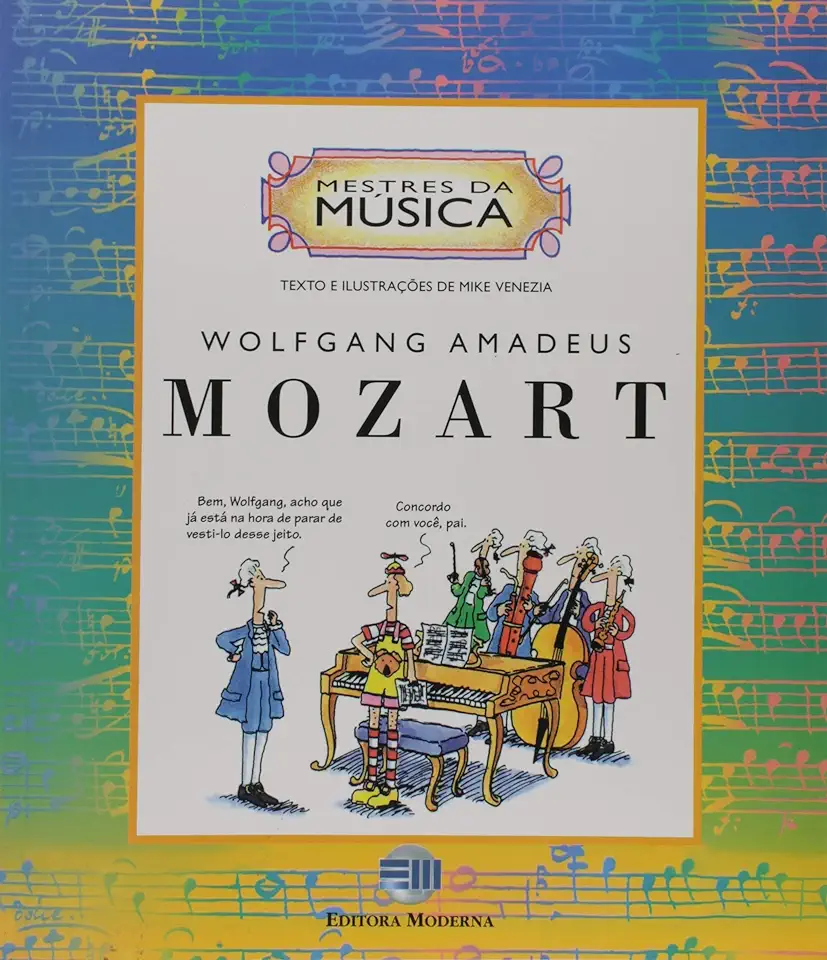
Masters of Music- Wolfgang Amadeus Mozart - Mike Venezia
Wolfgang Amadeus Mozart: A Musical Prodigy
Wolfgang Amadeus Mozart, born on January 27, 1756, in Salzburg, Austria, was a child prodigy who displayed an extraordinary talent for music from a very young age. By the time he was six years old, he had already composed several pieces of music and performed for royalty and nobility across Europe.
Early Life and Musical Education
Mozart's father, Leopold Mozart, was a violinist and composer who recognized and nurtured his son's musical abilities. He provided Wolfgang with a rigorous musical education, teaching him to play the piano, violin, and harpsichord. Mozart also studied composition and music theory under the guidance of his father and other renowned musicians of the time.
Musical Genius
Mozart's musical genius was evident in his early compositions, which displayed a remarkable maturity and complexity. He had a natural gift for melody, harmony, and counterpoint, and his music was characterized by its beauty, grace, and emotional depth. Mozart's compositions spanned a wide range of genres, including symphonies, concertos, operas, and chamber music.
Operatic Masterpieces
Mozart's operas are considered some of the greatest and most influential works in the history of music. His most famous operas include "The Marriage of Figaro" (1786), "Don Giovanni" (1787), and "The Magic Flute" (1791). These operas showcase Mozart's mastery of dramatic storytelling, his ability to create memorable characters, and his gift for writing beautiful and expressive music.
Symphony No. 40
One of Mozart's most beloved works is his Symphony No. 40 in G minor, composed in 1788. This symphony is a testament to Mozart's compositional skill and his ability to evoke a wide range of emotions. The first movement is full of drama and intensity, while the second movement is a serene and lyrical Adagio. The third movement is a lively and playful Minuet, and the fourth movement is a triumphant and uplifting Allegro assai.
Influence on Western Music
Mozart's influence on Western music is immeasurable. His music continues to be performed and admired by audiences around the world, and his compositions have inspired countless other musicians. Mozart's legacy as a musical genius is secure, and his music will continue to be enjoyed and appreciated for generations to come.
Why You Should Read "Masters of Music: Wolfgang Amadeus Mozart"
If you are a music lover or simply appreciate the beauty of classical music, then "Masters of Music: Wolfgang Amadeus Mozart" is a must-read. This book provides a comprehensive and engaging exploration of Mozart's life, his music, and his enduring legacy. With its detailed analysis of Mozart's compositions and its insights into his creative process, this book will deepen your understanding and appreciation of one of the greatest composers in history.
Conclusion
Wolfgang Amadeus Mozart was a true master of music, whose genius and creativity have left an indelible mark on the world. His music continues to inspire and enchant audiences of all ages, and his legacy as one of the greatest composers of all time is firmly established. "Masters of Music: Wolfgang Amadeus Mozart" is a must-have for anyone who wants to delve deeper into the life and music of this extraordinary composer.
Enjoyed the summary? Discover all the details and take your reading to the next level — [click here to view the book on Amazon!]